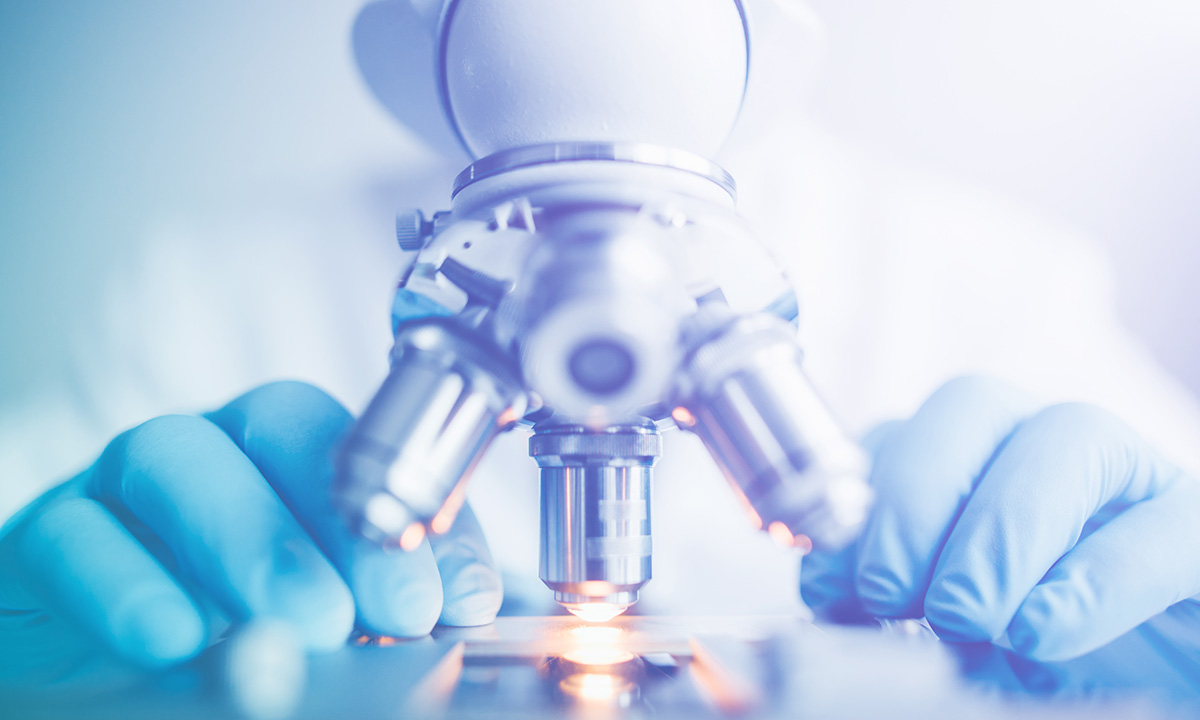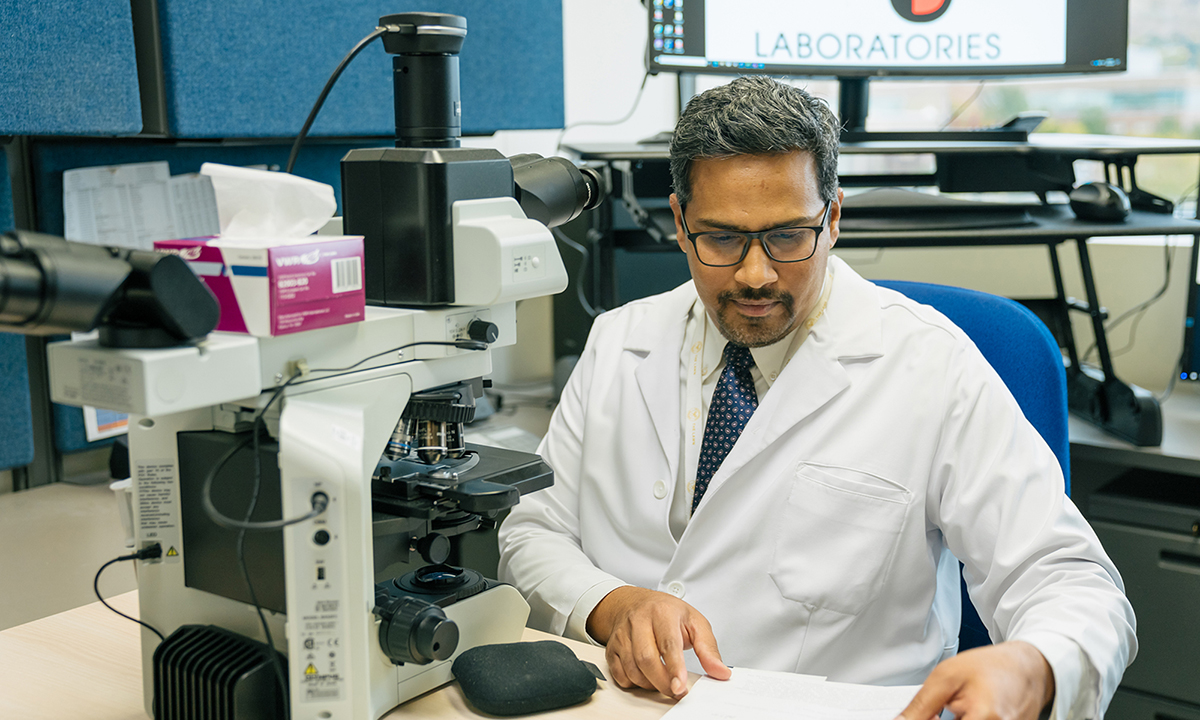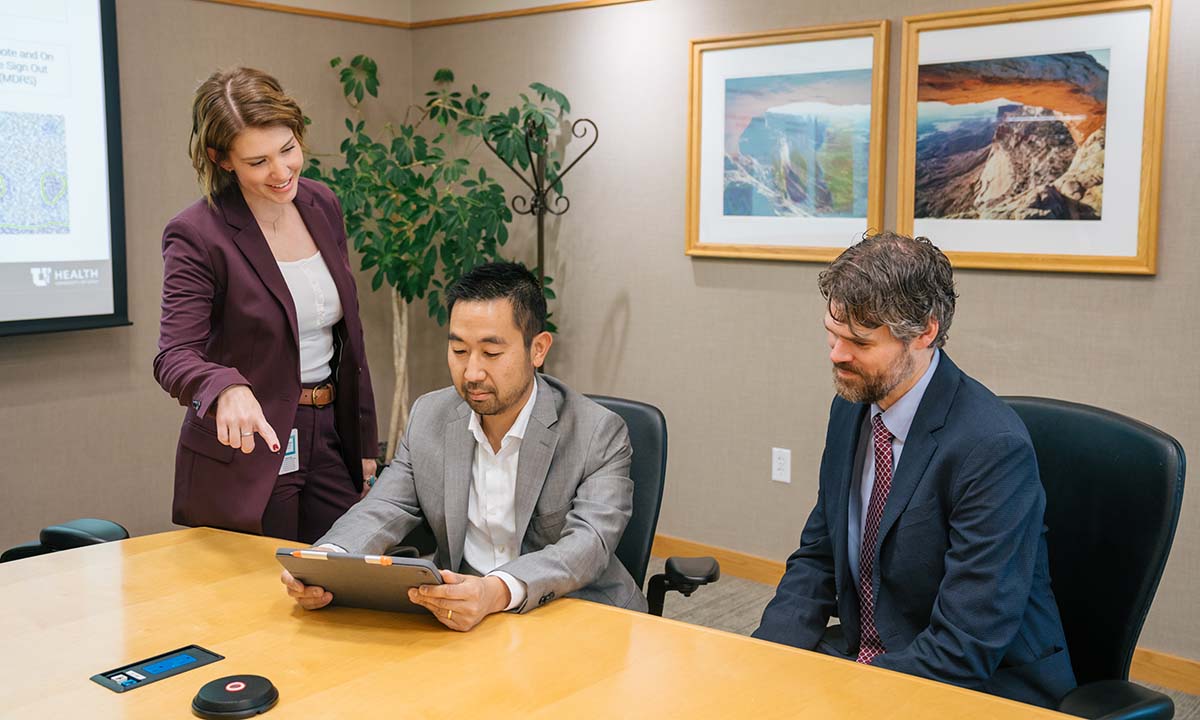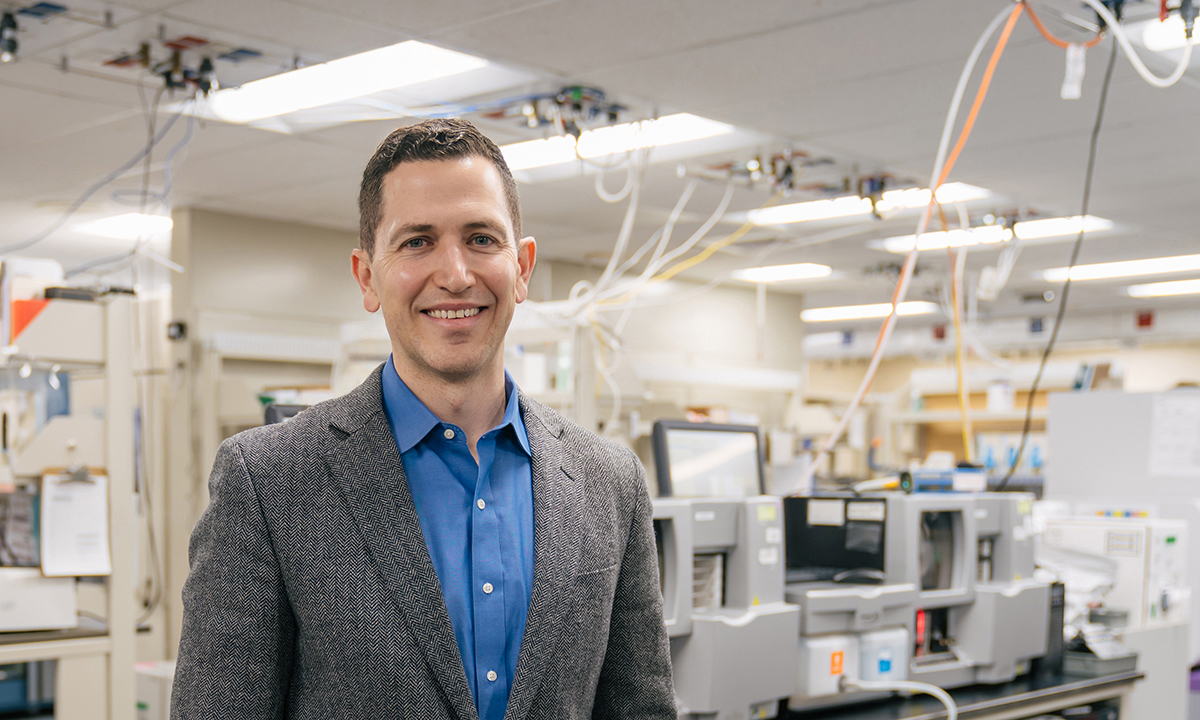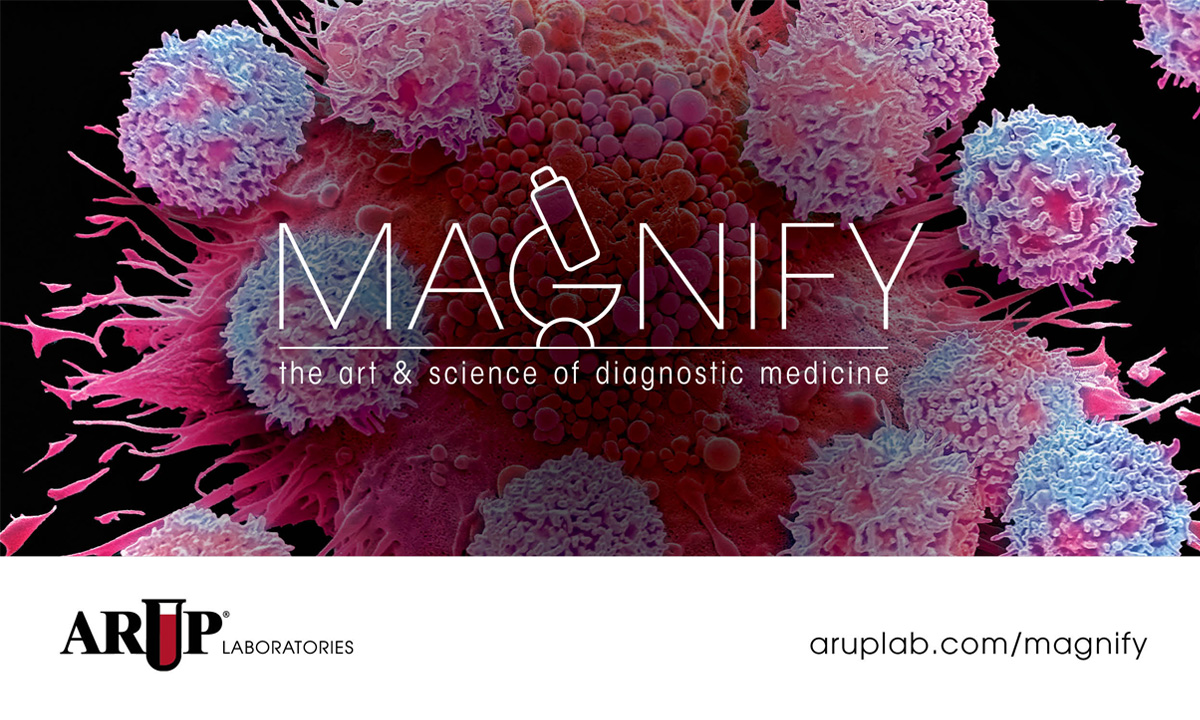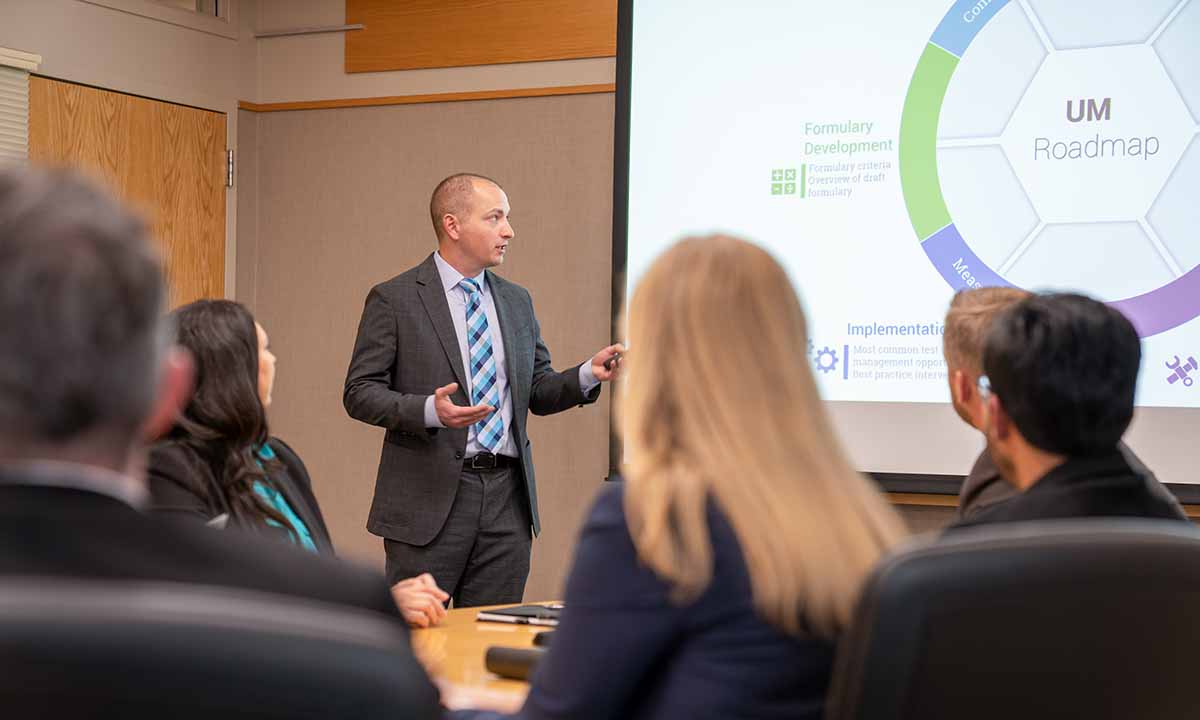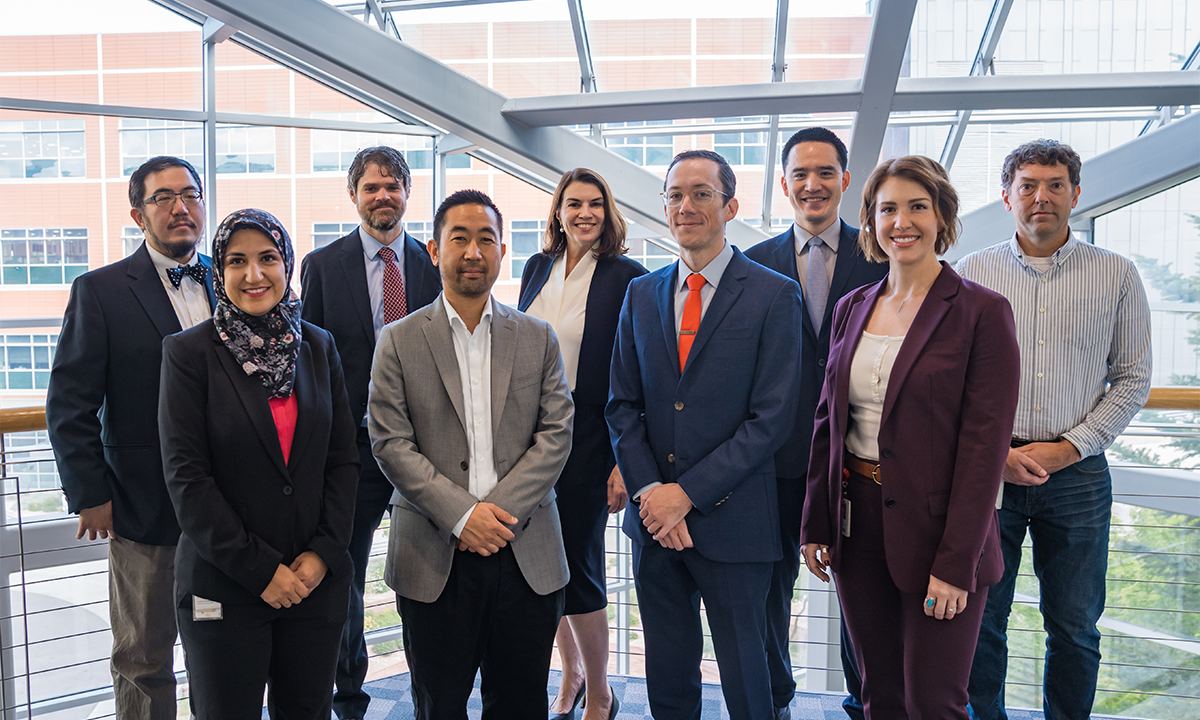ARUP medical directors and scientists will discuss the latest in pharmacogenomics, RNA sequencing, and laboratory genetics career pathways at the upcoming ACMG Annual Clinical Genetics Meeting.
Researchers at ARUP Laboratories published more than 130 peer-reviewed articles and contributed more than 135 posters or presentations at medical conferences in FY2023 to advance laboratory medicine.
Next generation sequencing provides a more rigorous and sensitive method to identify drug-resistant variants of cytomegalovirus, which enables earlier detection and more effective treatment.
PhD scientists, analysts, and medical directors within ARUP’s Hematopathology department meet often to ensure clinicians and patients receive a diagnosis that reflects an integrated approach.
ARUP and Medicover have partnered to provide a new companion diagnostic test to European Union patients. The test helps identify individuals eligible for a new gene therapy for severe hemophilia A.
ARUP has gained a Conformité Européenne (CE) mark for AAV5 DetectCDx™ single-site use. The test will aid in determining the eligibility of non-U.S. patients for a new hemophilia A gene therapy.
A panel discussion at the Utah Life Sciences Summit explored how the FDA’s proposed rule to further regulate laboratory-developed tests could slow advances in diagnostic medicine.
ARUP experts in molecular pathology will present at, participate in, and be available to attendees during the upcoming Association for Molecular Pathology (AMP) Meeting and Expo in Salt Lake City.
The Association for the Advancement of Blood and Biotherapies recommends that providers use a restrictive transfusion strategy to reduce unnecessary transfusions and the risk of adverse events.
The newest edition highlights innovations that keep ARUP at the forefront of toxicology testing. Also featured: ARUP’s expanded capacity for cytogenetics testing.
A platform clients use to reduce testing waste, lower cost per test, and improve patient safety has won the prestigious Choosing Wisely Champion Award from the American Society for Clinical Pathology.
New ARUP Institute for Research and Innovation in Diagnostic and Precision Medicine™ will improve patient lives by advancing groundbreaking diagnostic and prognostic technologies.


















